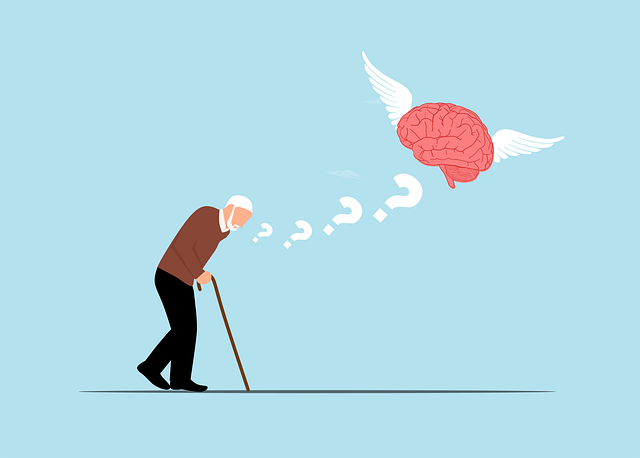Englewood Abuse Survivors Therapy (EAST) provides specialized support for individuals healing from trauma or abuse, focusing on effective coping skills and mental well-being. Through tailored therapy, cognitive-behavioral techniques, and mindfulness practices, EAST helps survivors navigate challenges, process traumatic experiences, and build resilience. By prioritizing self-care practices and mental health education, they empower clients to take charge of their recovery journey with enhanced emotional balance and improved mental wellness.
Coping skills development is a vital component of healing for individuals who have endured trauma, particularly those affected by abuse. This comprehensive guide explores effective strategies to navigate and overcome challenging experiences. We delve into the significance of coping skills, examining how they empower survivors to build resilience through evidence-based practices like Englewood Abuse Survivors Therapy. Discover personal growth through self-discovery, stress management techniques, and essential self-care rituals for long-term wellness.
- Understanding Coping Skills and Their Significance for Survivors
- The Role of Englewood Abuse Survivors Therapy in Building Resilience
- Identifying Personal Coping Strategies: A Journey to Self-Discovery
- Effective Techniques to Manage Stress and Trauma
- Practicing Self-Care: Nurturing Wellness After Adversity
Understanding Coping Skills and Their Significance for Survivors

Coping skills are essential for individuals who have experienced trauma or abuse, particularly those seeking therapy at Englewood Abuse Survivors. Understanding and developing effective coping strategies is a critical aspect of the healing process. These skills enable survivors to navigate the challenges they face, manage their emotions, and promote emotional well-being. In the context of mental healthcare, especially when addressing issues like abuse, cultural sensitivity plays a significant role in tailoring these coping techniques to each individual’s unique needs.
Through therapy, survivors can learn various Emotional Healing Processes that foster resilience and self-care. Techniques such as mindfulness, stress management, and healthy coping mechanisms help process traumatic memories while promoting emotional balance. Encouraging the development of these skills is vital not only for overcoming immediate challenges but also for long-term Emotional Well-being Promotion in a supportive healthcare environment like Englewood Abuse Survivors Therapy.
The Role of Englewood Abuse Survivors Therapy in Building Resilience

Englewood Abuse Survivors Therapy (EAST) plays a pivotal role in building resilience among individuals who have experienced abuse. This therapeutic approach is designed to help survivors navigate their traumatic experiences and develop effective coping skills, thereby enhancing their ability to cope with stress and adversity. EAST focuses on fostering self-esteem improvement, which is crucial for recovering from abuse. By addressing emotional and psychological wounds, survivors learn to trust themselves and their perceptions, a critical step in healing and rebuilding their lives.
Through structured programs tailored to individual needs, EAST facilitates coping skills development that goes beyond mere survival. Survivors are empowered to recognize and challenge unhealthy patterns, enabling them to break free from cycles of abuse and build sustainable resilience. This process is especially vital for healthcare providers suffering from burnout—a common issue within the profession due to high-stress environments. By adopting effective coping skills developed through EAST, healthcare providers can protect their mental health while continuing to deliver quality care.
Identifying Personal Coping Strategies: A Journey to Self-Discovery

Identifying Personal Coping Strategies is a transformative journey of self-discovery for individuals, especially those who have experienced trauma or hardship, such as Englewood Abuse Survivors. This process involves delving into one’s inner world to understand unique responses to stress, anger, or sadness. By recognizing these coping mechanisms, whether they are healthy or unhealthy, individuals can begin to navigate their emotional landscape with greater awareness.
Englewood Abuse Survivors Therapy emphasizes the importance of this journey, as it equips survivors with valuable tools for managing their mental wellness. Incorporating practices like Mindfulness Meditation and exploring Emotional Healing Processes allows for a profound sense of self-care. Through these techniques, individuals can enhance their ability to stay present, manage overwhelming emotions, and cultivate a deeper connection with themselves, ultimately fostering a sense of resilience and improved mental health.
Effective Techniques to Manage Stress and Trauma

Stress and trauma are common challenges faced by many, especially those who have experienced abuse or difficult circumstances. Effective coping strategies are essential for managing these feelings and promoting mental wellness. One proven approach is engaging in regular therapy sessions, such as those offered by Englewood Abuse Survivors Therapy (EAST). EAST specializes in providing support tailored to individuals’ unique needs, helping them process traumatic events and develop healthy coping mechanisms.
Through various therapeutic techniques, including cognitive-behavioral therapy (CBT) and mindfulness practices, clients at EAST learn to identify and manage stress triggers. CBT equips individuals with tools to challenge negative thought patterns and replace them with more adaptive ones, thereby reducing anxiety and improving emotional regulation. Additionally, mindfulness coaching programs focus on staying present and cultivating a non-judgmental awareness of thoughts and feelings, which is crucial for preventing burnout and nurturing overall mental wellness.
Practicing Self-Care: Nurturing Wellness After Adversity

After experiencing adversity, such as abuse or trauma, engaging in consistent self-care practices is a powerful tool for recovery and resilience. This involves recognizing and attending to one’s physical, emotional, and psychological needs. Simple acts like getting enough sleep, exercising regularly, eating nutritious meals, and practicing mindfulness can significantly contribute to an individual’s overall well-being. These activities help regulate emotions, reduce stress, and foster a sense of calm, which are essential for coping with challenging experiences.
Englewood Abuse Survivors Therapy (EAST) emphasizes the importance of compassion cultivation practices in building resilience. By incorporating self-care into daily routines, survivors can develop a deeper connection with themselves, enhance their mental health, and gradually heal from past traumas. Mental Health Education Programs Design that focus on these aspects empower individuals to take charge of their recovery journey, ensuring they have the tools to navigate life’s challenges with increased strength and resilience.
Coping skills development is a vital process for survivors of abuse, offering them the tools to navigate trauma and foster resilience. As highlighted by Englewood Abuse Survivors Therapy, building these skills can transform adversity into opportunities for growth. By understanding their significance and employing effective techniques like those discussed in this article, survivors can embark on a journey towards self-discovery and healing. Engaging in practices such as therapy, identifying personal coping strategies, managing stress, and prioritizing self-care are game-changers that empower individuals to overcome challenging experiences and create indelible positive change.














